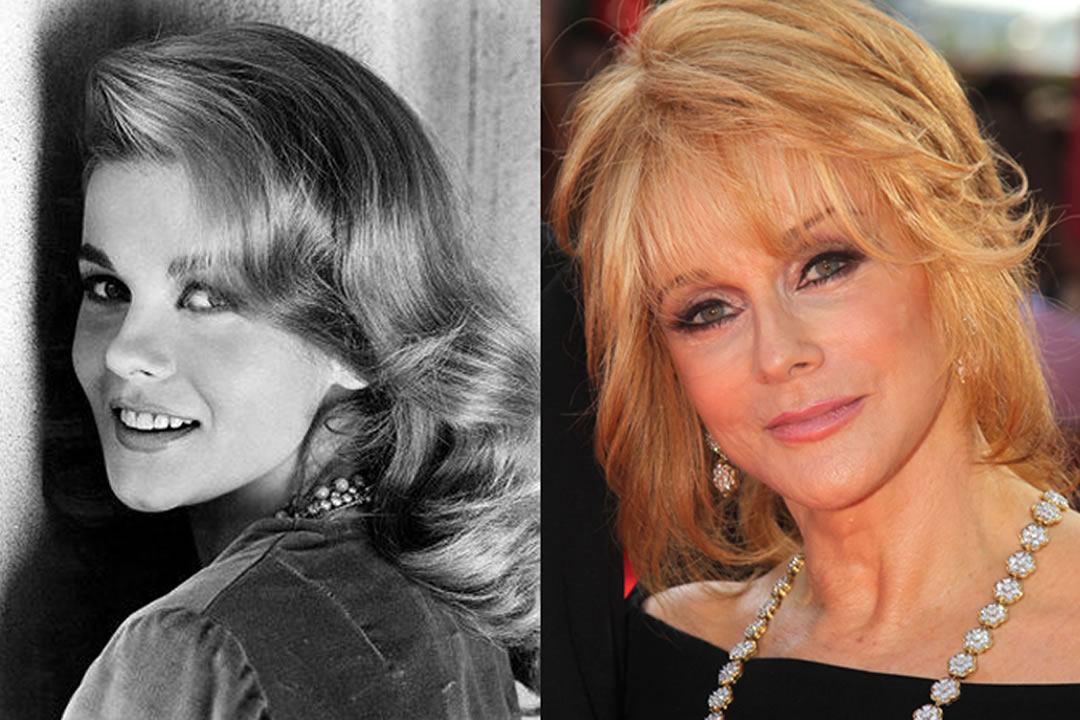When our ears pick up any mention of the ‘70s, a couple of the decade’s highlights pop up on the tip of our tongues—President Nixon’s historic ‘Victory’ hand signal after the announcement of his resignation, the riots and protests that criticized the infamous Vietnam War, the emergence of disco (including the bell-bottoms and afros that trademarked the style of the era), and the peak of the rock ‘n’ roll genre. With all of this decade’s contribution to the recorded history of pop culture, no other factor may have marked this decade in history more than the women who shone through it.
It may be their typically worry-free character, their tendency to forego bras, or their perceived preference for men who could grow a mustache, but the women that made the ‘70s their own simply can’t be mimicked even in the present.
We’re not sure if we can determine exactly why we personally love these heartthrobs of a decade long gone, but perhaps The 70 Hottest Women of the ‘70s list can help us determine.
Bernadette Peters
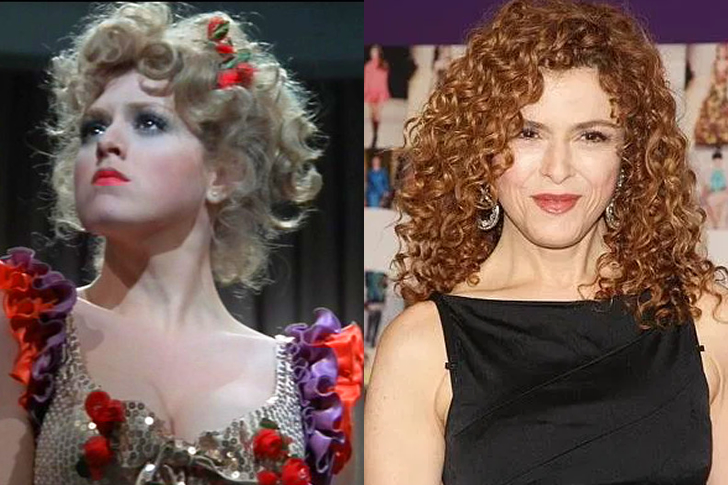
Known in the ‘70s for: playing a lead role in the Broadway musicals On the Town and Mack & Mabel
Bernadette Peters has a knack for performing both on and off the stage of Broadway ever since the latter half of the 1960s, but Hollywood did not yet deem her as a worthy investment in the film industry until she made her mark as a famous film star when she was cast by Mel Brooks in his 1976 film Silent Movie. Her role as a dauntless biker chick in Steve Martin’s 1979 comedy film The Jerk showed that she was an expert performer who knew how to pull the ropes to being either comedic or seductive.
Helen Reddy
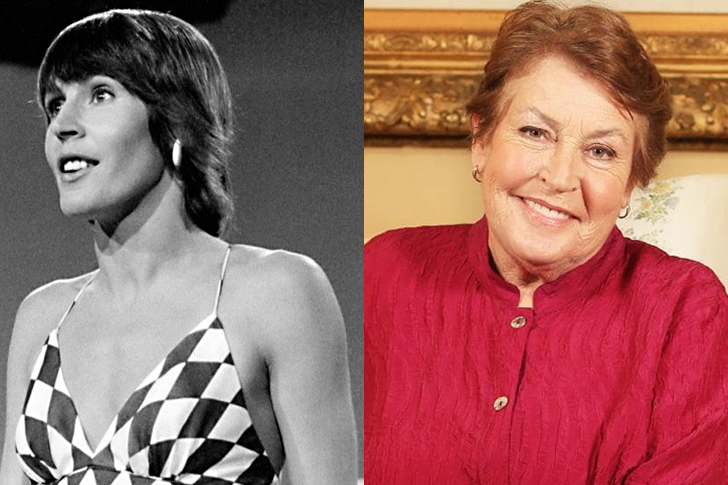
Known in the ‘70s for: performing the feminist song “I Am Woman”
Helen Reddy, who was born in Australia, managed to soar into the pop song charts in 1971. The feminist movement was on such a roll then that it even started its own magazine entitled Ms., edited by Gloria Steinem, that printed out its first publication in December 1971. Reddy would, in a year’s time, put out the feminist anthem “I Am Woman” which bested the U.S. and Canada pop song charts and won second at the U.S. Adult Contemporary and Australian charts. She wreaked havoc in the adult contemporary genre worse than on a hurricane-stricken house that would need serious roof repair with six successive #1’s, from “Delta Dawn” to “Emotion”.
Chris Evert
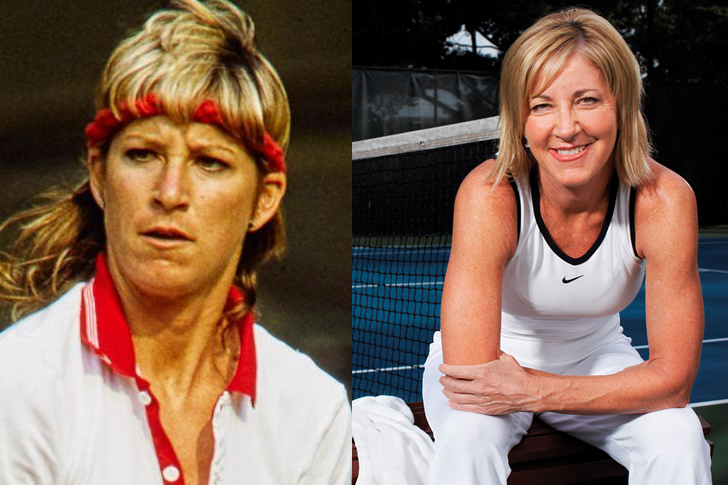
Known in the ‘70s for: standing as the highest-ranking female tennis player from 1974 to 1981
Chris Evert began her professional career in tennis when she entered the U.S. Open in 1971 at the age of 16. She conquered her first major tournaments (namely, the French Open and Wimbledon) in 1974 and prevailed since then as the highest-ranking women’s tennis player throughout the latter half of the decade. Calvin Klein may have seen potential in Evert as a valuable investment to the sport since she was later chosen as an endorser for Calvin Klein’s sportswear line before claiming her first Grand Slam. Her affair with Jimmy Connors had been likened to Hollywood’s Brangelina as the sport’s own version of the rendezvous.
Joni Mitchell
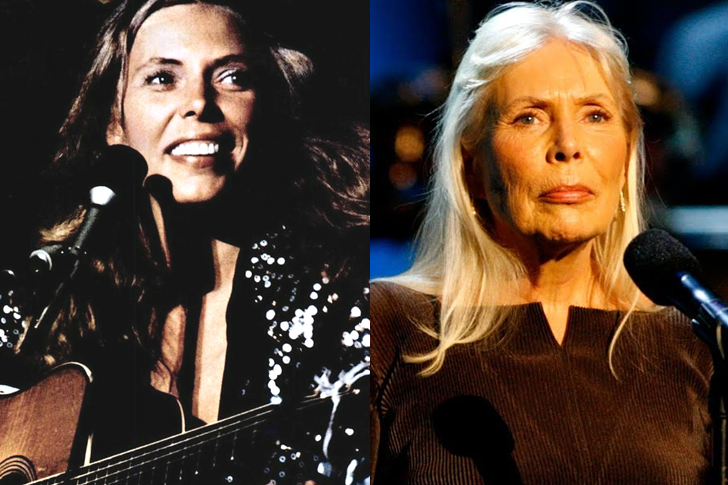
Known in the ‘70s for: Penning the popular albums Blue (1971), For the Roses (1972), and Court and Spark (1974)
The slim Canadian singer/songwriter who takes credit for “Chelsea Morning” and “Both Sides Now” was the most wanted folk artist in the industry, and she didn’t mind dating anyone within as well, as she have dated Jackson Browne, James Taylor, and two-thirds of the band Crosby, Stills & Nash. She was not only more alluring than the folk performers who came before her like Joan Baez and Judy Collins; she was willing to experiment with her musical diversity as she slowly made her way into jazz throughout the rest of the decade. A polio survivor who had her baby adopted at the age of 21, she was quite the bad-ass.
Agnetha Fältskog
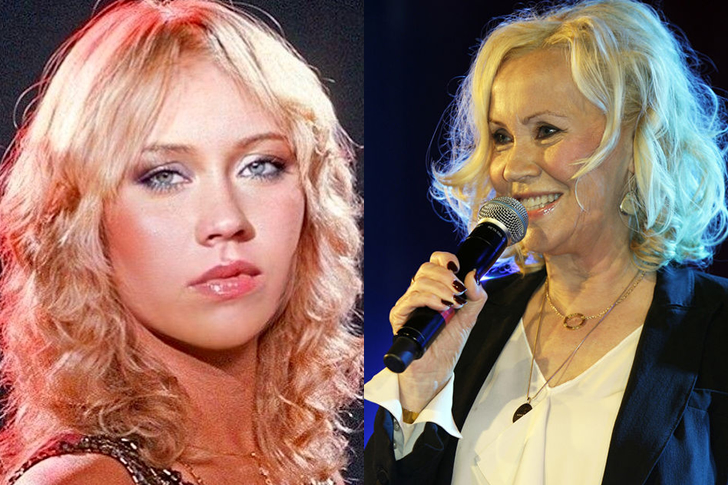
Known in the ‘70s for: Performing as a member of the band ABBA, famous for the disco classics “Dancing Queen” and “Take a Chance on Me”
Agnetha Fältskog’s first name initial may refer to the first letter of the Swedish pop band ABBA, but it can also mean that she is just astoundingly alluring. Her group may have given us songs that have themselves become default selections in every karaoke machine ever produced and put out in the world today, but for someone who made an investment of herself by starting her singing career performing as a chart-topping solo artist in her home country in the latter half of the ‘60s, Agnetha was a major turn-on for fans of the ‘70s everywhere sporting bell-bottom pants.
Cher
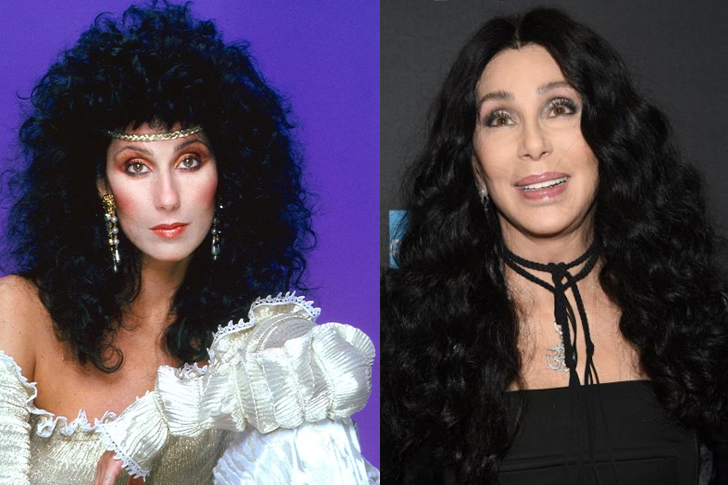
Known in the ‘70s for: Performing as a member of the rock duo Sonny & Cher
Cher made herself known to the world as the taller female member of the singing duo Sonny & Cher which made a chart-topping hit out of its 1965 debut single. While her pop singing career was greeted with success throughout the ‘60s, both as a solo performer and with her husband Sonny Bono, the debut of their variety show The Sonny and Cher Comedy Hour in 1971 helped establish Cher as an all-around entertainer and a valuable investment to the industry.
Like the singer, actress, and filmmaker Barbra Streisand, Cher would soon bag an Oscar, a Grammy, an Emmy, and three Golden Globes.
Charo
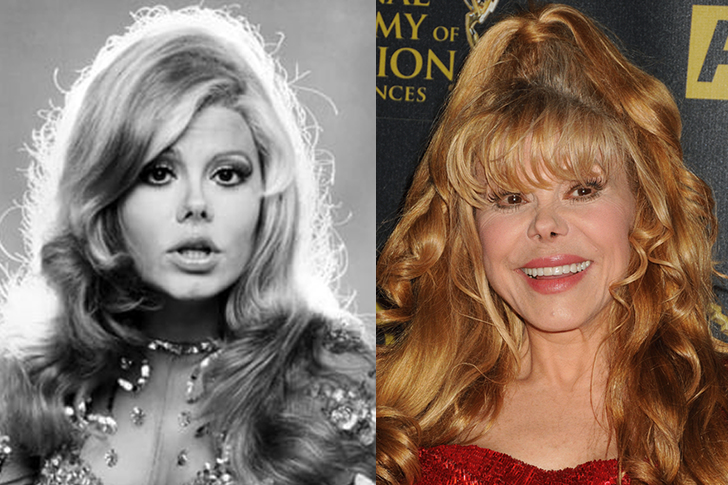
Known in the ‘70s for: Her work on variety shows and in Las Vegas
There seems to be no one in the decade with a personality greater than all-around entertainer Charo. The Spanish-American performer made her debut on American television in the mid-’60s in the variety show The Today Show before moving to Las Vegas at the peak of the ‘70s. She also established herself as a valuable investment by becoming one of its most-wanted headliners alongside other headliners of the time like Frank Sinatra, Ray Charles, and Dean Martin. Her vibrant personality and skimpy stage outfits later got her parts in The Love Boat, Donny & Marie, and the Brady Bunch variety spin-off.
Barbra Streisand
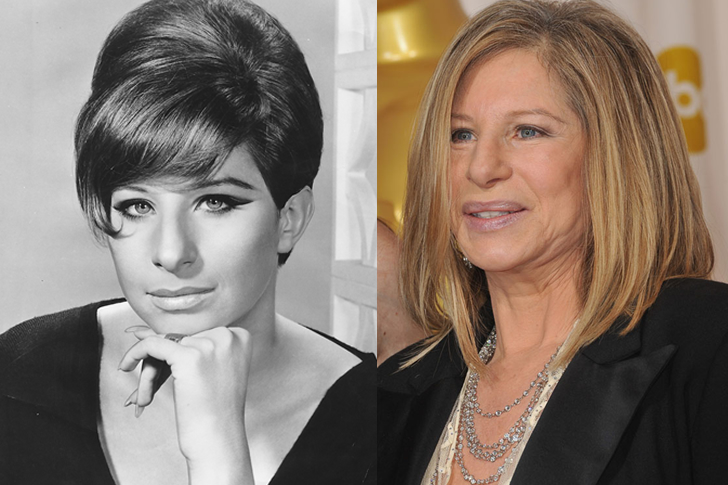
Known in the ‘70s for: Portraying the role of Katie in the film The Way We Were (1973)
Streisand began performing when she was still growing up in Brooklyn as a little Jewish girl with a loud voice, an uneven nose, and crossed eyes. When she later left her home for the world of showbiz, she would eventually bag two Oscars, eight Grammys, five Emmys, a Tony, a Peabody, and a Kennedy Center-type award that solidified her as a priceless investment to the industry. She may have spent much of the ‘60s as a popular singer, but her 1968 film debut in the movie Funny Girl earned her an Oscar award and a Golden Globe award, both in the Best Actress category.
Stevie Nicks
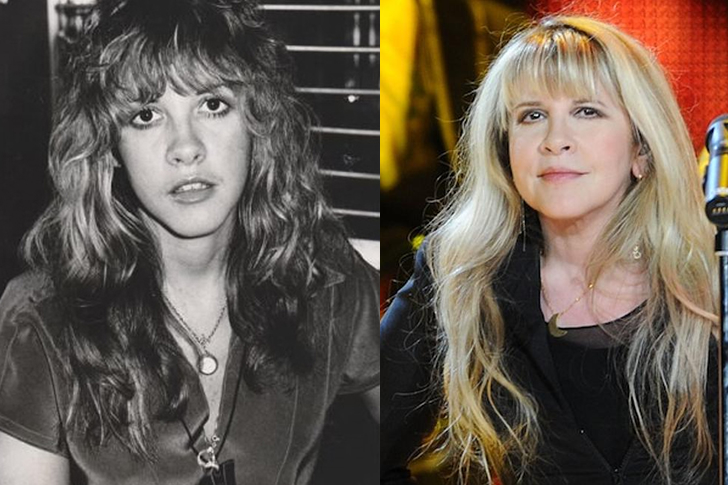
Known in the ‘70s for: Being the lead singer of the band Fleetwood Mac
Stevie Nicks and her boyfriend Lindsey Buckingham took over the band Fleetwood Mac in 1974 during what may be the most sensational yet tranquil coups in the history of rock. The band began as a UK-based blues-rock group in the latter half of the ‘60s that put out nine albums before the arrival of Nicks and Buckingham. The moment the two arrived, they took over much of the band’s songwriting (with some input from Christine McVie). The hit tracks “Rhiannon” and “Landslide” from the group’s 1975 self-titled album can all be credited to Nicks.
Ann-Margret
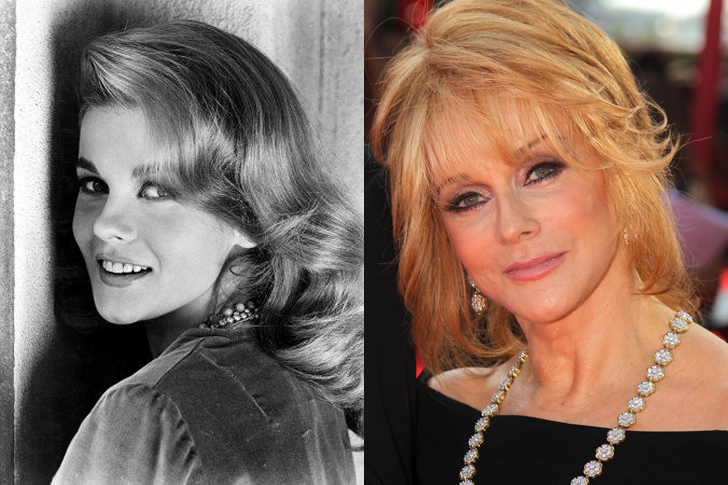
Known in the ‘70s for: Performing on talk shows including The Mike Douglas Show and Dinah! as a singer and dancer
After earning her spotlight on the 1963 musical comedy movie Bye, Bye, Birdie directed by George Sidney, leading actress Ann-Margret went on to headline her own live TV special The Ann-Margret Show in 1968. In the following decade, this versatile performer took on dramatic roles in films alongside live musical numbers with the adaptability of personal loans. In fact, she won a Golden Globe award for her performance in the 1975 rock movie musical Tommy directed by Ken Russell after starring alongside fellow Hollywood starlet John Wayne in the 1973 Western Technicolor film The Train Robbers directed by Burt Kennedy.

